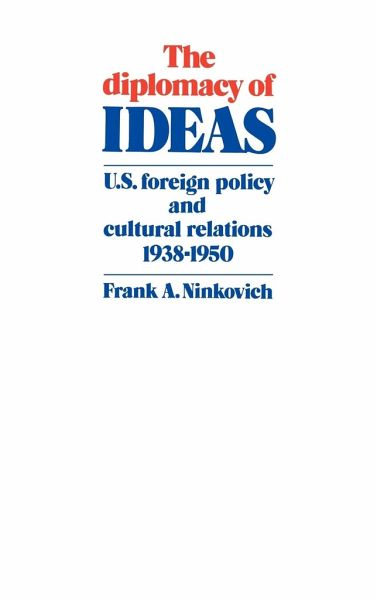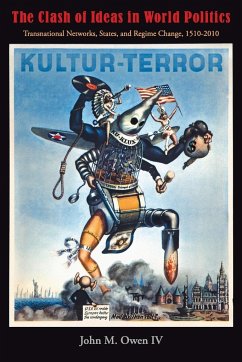
The Diplomacy of Ideas
Versandkostenfrei!
Versandfertig in 1-2 Wochen
39,99 €
inkl. MwSt.

PAYBACK Punkte
20 °P sammeln!
An interpretive history of the uses of cultural relations in U.S. foreign policy. Analyzes the links between fundamental foreign policy outlooks and American institutional structures. Shows how the U.S. made the transition from foreign policy passivity in the 1930s to global activism in the 1950s.Table of contents:Preface; Introduction; 1. Philanthropic origins of cultural policy; 2. Wartime departures from tradition; 3. Planning the liberal ecumene; 4. The failure of internationalism; 5. The politics of institutionalization; 6. The transformation of cultural internationalism; Conclusion: free...
An interpretive history of the uses of cultural relations in U.S. foreign policy. Analyzes the links between fundamental foreign policy outlooks and American institutional structures. Shows how the U.S. made the transition from foreign policy passivity in the 1930s to global activism in the 1950s.
Table of contents:
Preface; Introduction; 1. Philanthropic origins of cultural policy; 2. Wartime departures from tradition; 3. Planning the liberal ecumene; 4. The failure of internationalism; 5. The politics of institutionalization; 6. The transformation of cultural internationalism; Conclusion: freedom, ideology, and culture; Epilogue; Notes; Bibliography; Index.
An interpretive history of the uses of cultural relations in U.S. foreign policy. Analyzes the links between fundamental foreign policy outlooks and American institutional structures. Shows how the U.S. made the transition from foreign policy passivity in the 1930s to global activism in the 1950s.
Table of contents:
Preface; Introduction; 1. Philanthropic origins of cultural policy; 2. Wartime departures from tradition; 3. Planning the liberal ecumene; 4. The failure of internationalism; 5. The politics of institutionalization; 6. The transformation of cultural internationalism; Conclusion: freedom, ideology, and culture; Epilogue; Notes; Bibliography; Index.
An interpretive history of the uses of cultural relations in U.S. foreign policy. Analyzes the links between fundamental foreign policy outlooks and American institutional structures. Shows how the U.S. made the transition from foreign policy passivity in the 1930s to global activism in the 1950s.














